
Home
Preamble
Index
Areas
Map
References
Me
Drakkar
Saunterings: Walking in North-West England
Saunterings is a set of reflections based upon walks around the counties of Cumbria, Lancashire and
North Yorkshire in North-West England
(as defined in the Preamble).
Here is a list of all Saunterings so far.
If you'd like to give a comment, correction or update (all are very welcome) or to
be notified by email when a new item is posted - please send an email to johnselfdrakkar@gmail.com.
45. Thoughts from the Towpath (Bilsborrow to Preston)
Although North-West England has the country’s best mountains, it is not necessary that all walks should be
up and down them. Mountain walks should be leavened with strolls
on the level, and you can’t get leveller than the
Lancaster Canal.
The Canal runs for 42 miles between Preston and Tewitfield. Actually, it doesn’t run anywhere because it is flat, following the 20-or-so metre contour on a nicely curving route. A walk along its towpath can be briskly taken without fear of getting lost or stressing the up-and-down walking muscles.

The Lancaster Canal (looking back)
Towpath walking is so simple that it is hard to relate it to the forms of walking discussed in texts
purporting to elucidate the profound, philosophical nature of pedestrianism. The most pretentious of such texts
that I have tried to read so far is The Philosophy of Walking by Frédéric Gros (Gros, 2014). I became bogged down within the first ten pages by sentences such as “the freedom in walking lies in not being anyone; for the walking body has no history, it is just an eddy in the stream of immemorial life” and “endless walking … illustrates the harmonization of the nameless Self with the omnipresent heart of the World”. However, I persevered and by the end I was amused by the fact that seven of the nineteen chapters were case histories of the celebrated walkers Nietzsche, Rimbaud, Rousseau, Thoreau, Nerval, Kant and Gandhi. Why I found that amusing I will explain during this saunter.
I began at Bilsborrow, a village on the A6 sandwiched between the railway and the canal. It is seven miles north of Preston but twelve miles by the canal. I imagine that in the summer the Bilsborrow canal area is a busy place for even on the day of my walk there were a fair number of people milling about. But once beyond the first bridge I was alone with my thoughts.
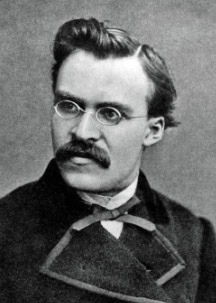
If I feel brave enough I may return to Gros’s ponderings later but for the moment I will just focus on the straightforward notion that walking is good for you, physically and mentally. Gros has a chapter on ‘states of well-being’ in which he discusses how walking brings pleasure, joy, happiness and serenity, which he carefully describes and distinguishes. His case histories illustrate those benefits. Friedrich Nietzsche (1844-1900) wrote that “All truly great thoughts are conceived while walking”. Being a philosopher anxious for great thoughts, he walked a lot. He also took long solitary walks to gain some relief from terrible migraines. In the 1880s back pain prevented him walking much and in 1889 he became demented. His mother took him for walks and then wheeled him about when he could no longer walk. He died in 1900 aged 55.
I strolled on the towpath, on and on, seeing nobody, not even on any of the canal-boats parked in the canal or adjacent marinas. All the boats were wrapped up for the winter.
Why is that? Is canal-boating not allowed in winter? Is it not
enjoyable then? Most activities are more fun in the sun but they don’t all stop in the winter. I, for example, was content to walk in the shower that fell upon me. Canal-boaters would be safe, cocooned in their cabins.

The Lancaster Canal (looking back), south of Bilsborrow
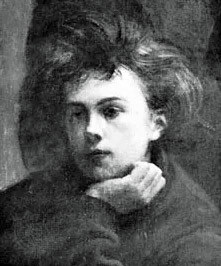 From the age of 15 the poet Arthur Rimbaud (1854-1891) walked great distances, mainly in anger,
to escape something or other.
Rimbaud is regarded as one of France's greatest poets although he ended his literary career at the age
of twenty to begin a life as a wandering libertine.
He was said to have 'soles of wind' and described himself as "a pedestrian, nothing more".
His extreme walking led to a serious knee injury that required his
leg to be amputated. He still dreamed of walking with a wooden leg but before he could do so he died, aged 37.
There is now an 'Arthur Rimbaud Trail' which ends at the cemetery in Charleville where he is buried.
From the age of 15 the poet Arthur Rimbaud (1854-1891) walked great distances, mainly in anger,
to escape something or other.
Rimbaud is regarded as one of France's greatest poets although he ended his literary career at the age
of twenty to begin a life as a wandering libertine.
He was said to have 'soles of wind' and described himself as "a pedestrian, nothing more".
His extreme walking led to a serious knee injury that required his
leg to be amputated. He still dreamed of walking with a wooden leg but before he could do so he died, aged 37.
There is now an 'Arthur Rimbaud Trail' which ends at the cemetery in Charleville where he is buried.
After about four miles of quiet solitude, I found the air increasingly filled with the rumble of traffic. I was approaching the M55, and then walked alongside it for a mile or more. Nowadays we accept motorways as a fact of life. Nonetheless, the noise ruins this walk. It cannot be pretended that this is an idyllic walk through the rural flatlands of Fylde.
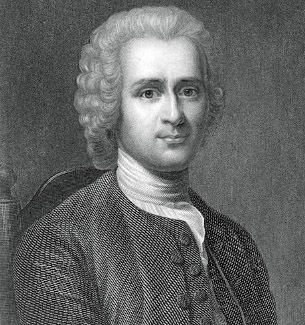 Jean-Jacques Rousseau (1712-1778) said “I can only meditate when I am walking, when I stop I cease to
think; my mind only works with my legs”. After establishing his reputation, Rousseau felt, during his forties,
a need to escape into the woods and to take long walks, in, according to Gros, “an insane plan to identify … the
natural man, one not disfigured by culture, education, art: man as he would have been before books or salons,
before society or paid labour”. To achieve this he “needed to make himself detestable to many”, in which
endeavour he evidently succeeded since he became “an outcast, rejected by all, proscribed everywhere”. In
1777-1778 he wrote Reveries of a Solitary Walker but did not complete it, dying aged 66.
Jean-Jacques Rousseau (1712-1778) said “I can only meditate when I am walking, when I stop I cease to
think; my mind only works with my legs”. After establishing his reputation, Rousseau felt, during his forties,
a need to escape into the woods and to take long walks, in, according to Gros, “an insane plan to identify … the
natural man, one not disfigured by culture, education, art: man as he would have been before books or salons,
before society or paid labour”. To achieve this he “needed to make himself detestable to many”, in which
endeavour he evidently succeeded since he became “an outcast, rejected by all, proscribed everywhere”. In
1777-1778 he wrote Reveries of a Solitary Walker but did not complete it, dying aged 66.
At Salwick Bridge, after seven miles of walking, I saw a person. I was glad to see him. Towpath-walking is monotonous. For mile after mile I had walked with the canal a yard to my left and a hedge a yard to my right. The footpath varied only in its degree of muddiness. The character of the canal did not change at all, unlike that of a flowing river. It was always still, with perhaps a few reeds by the side, some ducks from time to time, and one or two swans. The bridges were all much the same, apart from the number pinned thereon. There were, of course, no locks, since the canal is flat.

The Lancaster Canal (looking forward), nearing Ward's House Bridge, heading to Preston at last
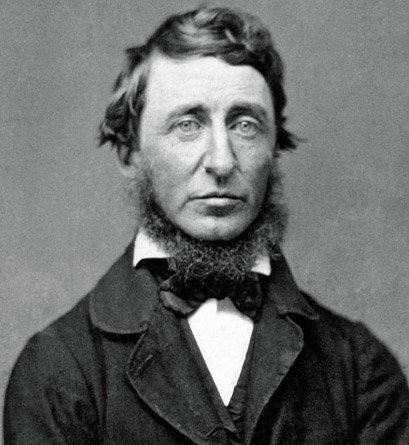 According to Gros, Henry David Thoreau (1817-1862) was the “author of the first philosophic treatise on walking”.
I am surprised that
Walking (Thoreau, 1862)
should be so described by a philosopher. Thoreau had a knack for quotable sentences, generally about nature and
the wild. He was also quite good at nonsensical paragraphs. At least, they seem so to me. For example, the
second paragraph of Walking begins “I have met with but one or two persons in the course of my life
who understood the art of Walking, that is, of taking walks – who had a genius, so to speak, for sauntering”.
Clearly, his Walking (capital W) is different to my walking and to that activity that billions of people have
mastered by the age of two. Therefore anything he says about Walking has no relevance to walking. When he
writes in the third paragraph that “If you are ready to leave father and mother, and brother and sister, and
wife and child and friends, and never see them again … then you are ready for a walk” who cannot think
‘nonsense’? If his contemporaries reacted to his words as I do then I am not surprised that he went off to
live in isolation in the wild, leading to his classic book Walden. Thoreau suffered from tuberculosis and in 1860, after a night-time walk in a rainstorm, became ill with bronchitis, from which he never recovered, dying in 1862, aged 44.
According to Gros, Henry David Thoreau (1817-1862) was the “author of the first philosophic treatise on walking”.
I am surprised that
Walking (Thoreau, 1862)
should be so described by a philosopher. Thoreau had a knack for quotable sentences, generally about nature and
the wild. He was also quite good at nonsensical paragraphs. At least, they seem so to me. For example, the
second paragraph of Walking begins “I have met with but one or two persons in the course of my life
who understood the art of Walking, that is, of taking walks – who had a genius, so to speak, for sauntering”.
Clearly, his Walking (capital W) is different to my walking and to that activity that billions of people have
mastered by the age of two. Therefore anything he says about Walking has no relevance to walking. When he
writes in the third paragraph that “If you are ready to leave father and mother, and brother and sister, and
wife and child and friends, and never see them again … then you are ready for a walk” who cannot think
‘nonsense’? If his contemporaries reacted to his words as I do then I am not surprised that he went off to
live in isolation in the wild, leading to his classic book Walden. Thoreau suffered from tuberculosis and in 1860, after a night-time walk in a rainstorm, became ill with bronchitis, from which he never recovered, dying in 1862, aged 44.
The M55 noise abated, to be replaced by that of the Springfields nuclear fuel manufacturing plant at Salwick. How about that for modern life intruding upon the self-contained quietude of the towpath! Hereabouts I noticed a large “Please take your litter home” sign. I may have passed others without noticing them but by now I was glad of stimulation wherever I could find it. The odd thing about this sign was that it was accompanied by the largest pile of litter I’d seen by the canal. It was as if canal-boaters had seen a mention of ‘litter’ and were prompted to get rid of their bags of it. I doubt that I am unfairly maligning canal-boaters because nobody else would bring their rubbish to this spot.
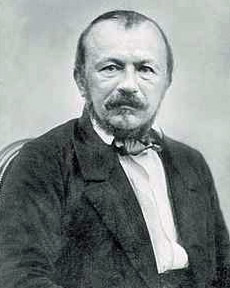 Gérard de Nerval (1808-1855) wrote melancholic novellas and poems. He suffered from compulsive vomiting and
in 1841 had a nervous breakdown. He continued to suffer from manic-depressive disorders associated with an urge
to take long walks. In 1854 his walking became obsessive. According to Gros, “walking made his illness flower … it
completed the madness”. Flower? – Gros makes it sound like a positive development. Nerval “never stopped walking”,
at least not until his last walk in 1855 on which he hanged himself, aged 46.
Gérard de Nerval (1808-1855) wrote melancholic novellas and poems. He suffered from compulsive vomiting and
in 1841 had a nervous breakdown. He continued to suffer from manic-depressive disorders associated with an urge
to take long walks. In 1854 his walking became obsessive. According to Gros, “walking made his illness flower … it
completed the madness”. Flower? – Gros makes it sound like a positive development. Nerval “never stopped walking”,
at least not until his last walk in 1855 on which he hanged himself, aged 46.
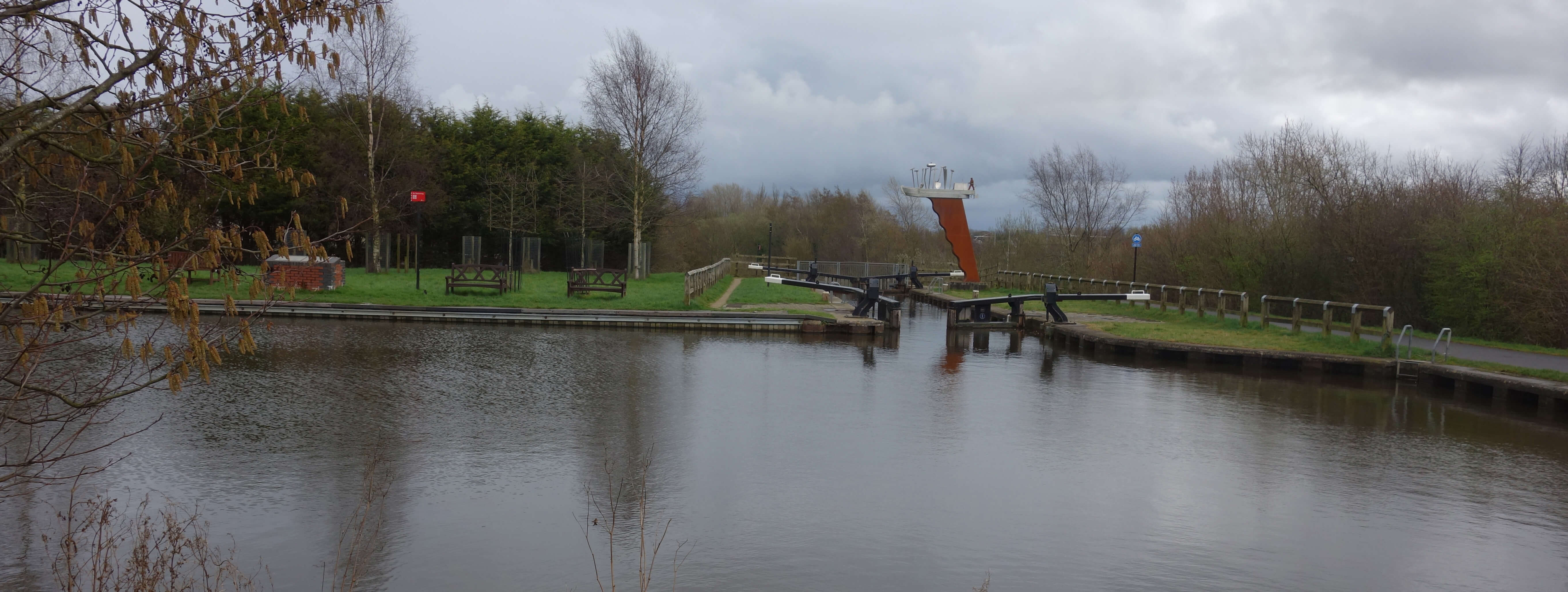 I came upon a few more walkers and even an angler. Rarely can anyone have been as keen as I was to
see signs of reaching the outskirts of Preston. First, though, I came to an inlet on the south side of the
canal (shown right). I saw no sign to explain what it was for. It is, in fact, the top end of the
Ribble Link,
completed in 2002. Originally, the Lancaster Canal was intended to connect with the Leeds-Liverpool Canal but the part south of Preston was never constructed. The Ribble Link, with nine locks, now enables canal-boats to reach the Ribble and thence, via the River Douglas, the Leeds-Liverpool Canal. However, if canal-boaters are too timid to face our winter then I can’t see many of them tackling the Ribble.
I came upon a few more walkers and even an angler. Rarely can anyone have been as keen as I was to
see signs of reaching the outskirts of Preston. First, though, I came to an inlet on the south side of the
canal (shown right). I saw no sign to explain what it was for. It is, in fact, the top end of the
Ribble Link,
completed in 2002. Originally, the Lancaster Canal was intended to connect with the Leeds-Liverpool Canal but the part south of Preston was never constructed. The Ribble Link, with nine locks, now enables canal-boats to reach the Ribble and thence, via the River Douglas, the Leeds-Liverpool Canal. However, if canal-boaters are too timid to face our winter then I can’t see many of them tackling the Ribble.
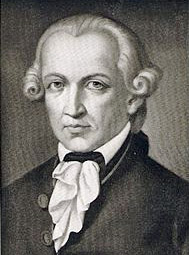 Immanuel Kant (1724-1804) was always upset by change. He therefore lived a life of routine. For decades he did exactly the same thing every day. This included a walk in the afternoon – always the same walk. According to Currey (2013), Kant had “a generally delicate constitution … [and] in order to prolong his life with the condition – and in an effort to quell the mental anguish caused by his lifelong hypochondria – Kant adopted what he called ‘a certain uniformity in the way of living’”. Kant presumably considered the walk important for his well-being but perhaps no more so than the other parts of his daily ritual. At all events, he did at least live to old age, although as Gros puts it, it is “hard to imagine a drearier existence”.
Immanuel Kant (1724-1804) was always upset by change. He therefore lived a life of routine. For decades he did exactly the same thing every day. This included a walk in the afternoon – always the same walk. According to Currey (2013), Kant had “a generally delicate constitution … [and] in order to prolong his life with the condition – and in an effort to quell the mental anguish caused by his lifelong hypochondria – Kant adopted what he called ‘a certain uniformity in the way of living’”. Kant presumably considered the walk important for his well-being but perhaps no more so than the other parts of his daily ritual. At all events, he did at least live to old age, although as Gros puts it, it is “hard to imagine a drearier existence”.
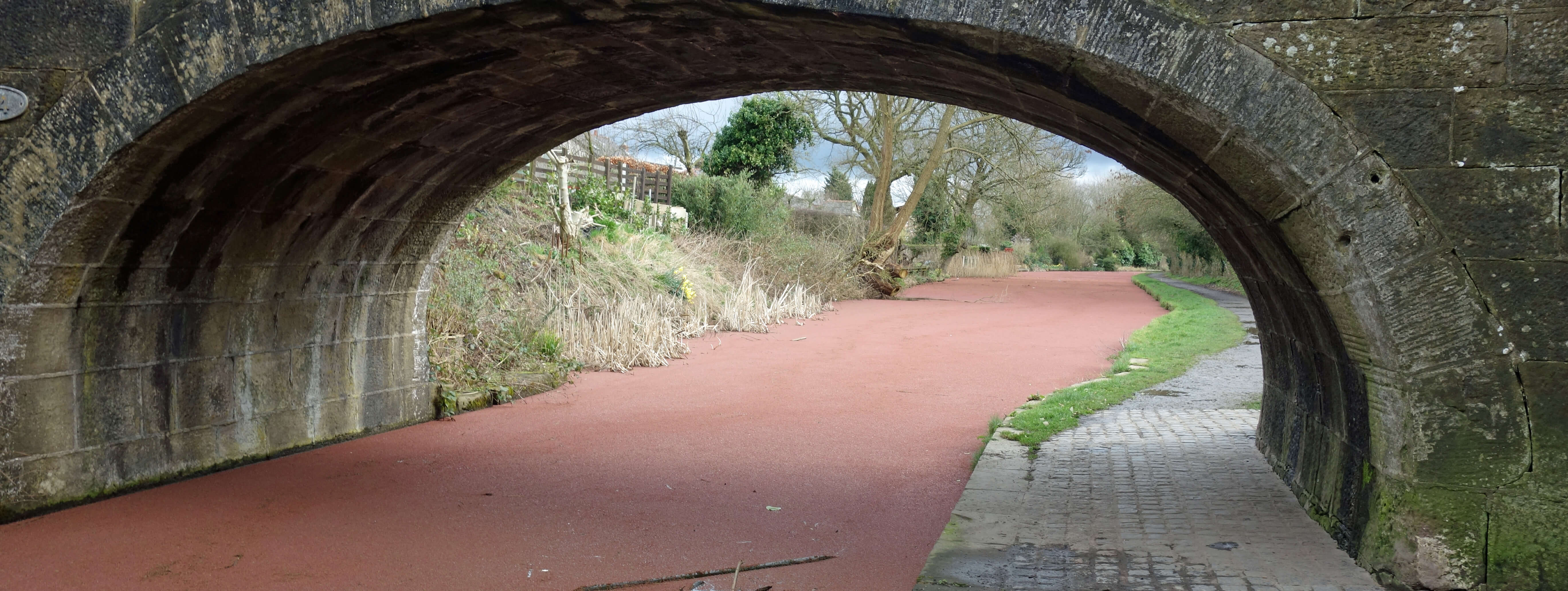 The canal went on. Kant might have liked the unchanging nature of it although he would have been alarmed when the canal turned a startling red (shown right). This was, I assume, from the droppings of adjacent trees, which I should be able to identify for you but cannot. I reached Savick House, dated 1838, hoping that it marked the end of the canal, but it didn’t. I tried to find interest in the varying attempts of the house-owners on the steep north bank to incorporate the delights of the canal into their garden.
The canal went on. Kant might have liked the unchanging nature of it although he would have been alarmed when the canal turned a startling red (shown right). This was, I assume, from the droppings of adjacent trees, which I should be able to identify for you but cannot. I reached Savick House, dated 1838, hoping that it marked the end of the canal, but it didn’t. I tried to find interest in the varying attempts of the house-owners on the steep north bank to incorporate the delights of the canal into their garden.
The walks of Mahatma Gandhi (1869-1948) were of a different genre to those of the other six that Gros considers.
Although he was fond of walking, Gandhi did not emphasise walking alone to ferment ideas. He is known more for
his long political marches in the company of many others. So I will put him aside here. What are we to make of
the case histories of the sextet? According to
one review,
Gros shows that “a good walk is not only the best cure for boredom but is the key to genius … it is the secret behind the outpourings of the world’s greatest minds”.
The canal eventually came to a scruffy end. There is nothing now to indicate how items were loaded
on and off the canal here because originally the canal continued into the centre of Preston.
The present canal end is perched above the level of the River Ribble and most of
the buildings of Preston, as the need for nine locks in the Ribble Link suggests. It would clearly have been expensive to extend the canal over the Ribble, even though the early 19th century Preston had many fewer buildings in the way.
We need to be more scientific before coming to any conclusion about the sextet. We need data, not
anecdotes. We need to determine the Rate of Generation of Great Ideas (RGGI, pronounced Reggie) when walking.
If you walk four or more hours a day, as Thoreau said he did, then there’s a fair chance your Great Ideas
will occur while you’re walking. Was Thoreau’s walking RGGI greater than, say, his dreaming RGGI or
his sitting-on-the-toilet RGGI? We need to extend our field of study beyond the select sextet. Imagine a list of the thinkers of the 100 Greatest Ideas. At least 94 of them were ignored by Gros. Did any of them make a fuss about
walking for their Great Ideas? Did they have a high walking RGGI? I suspect
the answers are ‘no’, as Gros would otherwise not have ignored them.
As far as health benefits go, you could hardly pick a more discouraging sextet: insanity,
leg amputation, suicide, social outcast, bronchitis from walking in the rain, a dreary existence.
Where's the pleasure, joy, happiness and serenity? We need to
distinguish cause and effect: did they walk a lot because of their problems or did they develop problems through
walking a lot (or neither)? There may be some correlation – you need to be a bit soft in the head to think a long walk from Bilsborrow to Preston is a good idea.
Leaving the canal at last, I did not, through tiredness and a misplaced confidence that I knew my way
about Preston, consult the map. I didn’t take the optimum route to the bus station and ended up running to
avoid a drenching in a downpour. Within the sanctuary of the bus station, I could reflect that although my
saunters may, like this one, be long and tedious I am unlikely to succumb to the problems of the sextet.
I am also unlikely to get onto the list of 100 greatest thinkers.
Date: March 4th 2019
Start: SD511400, Bilsborrow (Map: 286)
Route: (linear) W – canal – S (overall) on canal towpath – end of canal at Preston –
SE – Preston bus station
Distance: 12 miles; Ascent: 0 metres
Home
Preamble
Index
Areas
Map
References
Me
Drakkar
© John Self, Drakkar Press, 2018-

Top photo: The western Howgills from Dillicar;
Bottom photo: Blencathra from Great Mell Fell





 From the age of 15 the poet Arthur Rimbaud (1854-1891) walked great distances, mainly in anger,
to escape something or other.
Rimbaud is regarded as one of France's greatest poets although he ended his literary career at the age
of twenty to begin a life as a wandering libertine.
He was said to have 'soles of wind' and described himself as "a pedestrian, nothing more".
His extreme walking led to a serious knee injury that required his
leg to be amputated. He still dreamed of walking with a wooden leg but before he could do so he died, aged 37.
There is now an 'Arthur Rimbaud Trail' which ends at the cemetery in Charleville where he is buried.
From the age of 15 the poet Arthur Rimbaud (1854-1891) walked great distances, mainly in anger,
to escape something or other.
Rimbaud is regarded as one of France's greatest poets although he ended his literary career at the age
of twenty to begin a life as a wandering libertine.
He was said to have 'soles of wind' and described himself as "a pedestrian, nothing more".
His extreme walking led to a serious knee injury that required his
leg to be amputated. He still dreamed of walking with a wooden leg but before he could do so he died, aged 37.
There is now an 'Arthur Rimbaud Trail' which ends at the cemetery in Charleville where he is buried.
 Jean-Jacques Rousseau (1712-1778) said “I can only meditate when I am walking, when I stop I cease to
think; my mind only works with my legs”. After establishing his reputation, Rousseau felt, during his forties,
a need to escape into the woods and to take long walks, in, according to Gros, “an insane plan to identify … the
natural man, one not disfigured by culture, education, art: man as he would have been before books or salons,
before society or paid labour”. To achieve this he “needed to make himself detestable to many”, in which
endeavour he evidently succeeded since he became “an outcast, rejected by all, proscribed everywhere”. In
1777-1778 he wrote Reveries of a Solitary Walker but did not complete it, dying aged 66.
Jean-Jacques Rousseau (1712-1778) said “I can only meditate when I am walking, when I stop I cease to
think; my mind only works with my legs”. After establishing his reputation, Rousseau felt, during his forties,
a need to escape into the woods and to take long walks, in, according to Gros, “an insane plan to identify … the
natural man, one not disfigured by culture, education, art: man as he would have been before books or salons,
before society or paid labour”. To achieve this he “needed to make himself detestable to many”, in which
endeavour he evidently succeeded since he became “an outcast, rejected by all, proscribed everywhere”. In
1777-1778 he wrote Reveries of a Solitary Walker but did not complete it, dying aged 66.

 According to Gros, Henry David Thoreau (1817-1862) was the “author of the first philosophic treatise on walking”.
I am surprised that
Walking (Thoreau, 1862)
should be so described by a philosopher. Thoreau had a knack for quotable sentences, generally about nature and
the wild. He was also quite good at nonsensical paragraphs. At least, they seem so to me. For example, the
second paragraph of Walking begins “I have met with but one or two persons in the course of my life
who understood the art of Walking, that is, of taking walks – who had a genius, so to speak, for sauntering”.
Clearly, his Walking (capital W) is different to my walking and to that activity that billions of people have
mastered by the age of two. Therefore anything he says about Walking has no relevance to walking. When he
writes in the third paragraph that “If you are ready to leave father and mother, and brother and sister, and
wife and child and friends, and never see them again … then you are ready for a walk” who cannot think
‘nonsense’? If his contemporaries reacted to his words as I do then I am not surprised that he went off to
live in isolation in the wild, leading to his classic book Walden. Thoreau suffered from tuberculosis and in 1860, after a night-time walk in a rainstorm, became ill with bronchitis, from which he never recovered, dying in 1862, aged 44.
According to Gros, Henry David Thoreau (1817-1862) was the “author of the first philosophic treatise on walking”.
I am surprised that
Walking (Thoreau, 1862)
should be so described by a philosopher. Thoreau had a knack for quotable sentences, generally about nature and
the wild. He was also quite good at nonsensical paragraphs. At least, they seem so to me. For example, the
second paragraph of Walking begins “I have met with but one or two persons in the course of my life
who understood the art of Walking, that is, of taking walks – who had a genius, so to speak, for sauntering”.
Clearly, his Walking (capital W) is different to my walking and to that activity that billions of people have
mastered by the age of two. Therefore anything he says about Walking has no relevance to walking. When he
writes in the third paragraph that “If you are ready to leave father and mother, and brother and sister, and
wife and child and friends, and never see them again … then you are ready for a walk” who cannot think
‘nonsense’? If his contemporaries reacted to his words as I do then I am not surprised that he went off to
live in isolation in the wild, leading to his classic book Walden. Thoreau suffered from tuberculosis and in 1860, after a night-time walk in a rainstorm, became ill with bronchitis, from which he never recovered, dying in 1862, aged 44.
 Gérard de Nerval (1808-1855) wrote melancholic novellas and poems. He suffered from compulsive vomiting and
in 1841 had a nervous breakdown. He continued to suffer from manic-depressive disorders associated with an urge
to take long walks. In 1854 his walking became obsessive. According to Gros, “walking made his illness flower … it
completed the madness”. Flower? – Gros makes it sound like a positive development. Nerval “never stopped walking”,
at least not until his last walk in 1855 on which he hanged himself, aged 46.
Gérard de Nerval (1808-1855) wrote melancholic novellas and poems. He suffered from compulsive vomiting and
in 1841 had a nervous breakdown. He continued to suffer from manic-depressive disorders associated with an urge
to take long walks. In 1854 his walking became obsessive. According to Gros, “walking made his illness flower … it
completed the madness”. Flower? – Gros makes it sound like a positive development. Nerval “never stopped walking”,
at least not until his last walk in 1855 on which he hanged himself, aged 46.
 I came upon a few more walkers and even an angler. Rarely can anyone have been as keen as I was to
see signs of reaching the outskirts of Preston. First, though, I came to an inlet on the south side of the
canal (shown right). I saw no sign to explain what it was for. It is, in fact, the top end of the
Ribble Link,
completed in 2002. Originally, the Lancaster Canal was intended to connect with the Leeds-Liverpool Canal but the part south of Preston was never constructed. The Ribble Link, with nine locks, now enables canal-boats to reach the Ribble and thence, via the River Douglas, the Leeds-Liverpool Canal. However, if canal-boaters are too timid to face our winter then I can’t see many of them tackling the Ribble.
I came upon a few more walkers and even an angler. Rarely can anyone have been as keen as I was to
see signs of reaching the outskirts of Preston. First, though, I came to an inlet on the south side of the
canal (shown right). I saw no sign to explain what it was for. It is, in fact, the top end of the
Ribble Link,
completed in 2002. Originally, the Lancaster Canal was intended to connect with the Leeds-Liverpool Canal but the part south of Preston was never constructed. The Ribble Link, with nine locks, now enables canal-boats to reach the Ribble and thence, via the River Douglas, the Leeds-Liverpool Canal. However, if canal-boaters are too timid to face our winter then I can’t see many of them tackling the Ribble.
 Immanuel Kant (1724-1804) was always upset by change. He therefore lived a life of routine. For decades he did exactly the same thing every day. This included a walk in the afternoon – always the same walk. According to Currey (2013), Kant had “a generally delicate constitution … [and] in order to prolong his life with the condition – and in an effort to quell the mental anguish caused by his lifelong hypochondria – Kant adopted what he called ‘a certain uniformity in the way of living’”. Kant presumably considered the walk important for his well-being but perhaps no more so than the other parts of his daily ritual. At all events, he did at least live to old age, although as Gros puts it, it is “hard to imagine a drearier existence”.
Immanuel Kant (1724-1804) was always upset by change. He therefore lived a life of routine. For decades he did exactly the same thing every day. This included a walk in the afternoon – always the same walk. According to Currey (2013), Kant had “a generally delicate constitution … [and] in order to prolong his life with the condition – and in an effort to quell the mental anguish caused by his lifelong hypochondria – Kant adopted what he called ‘a certain uniformity in the way of living’”. Kant presumably considered the walk important for his well-being but perhaps no more so than the other parts of his daily ritual. At all events, he did at least live to old age, although as Gros puts it, it is “hard to imagine a drearier existence”.
 The canal went on. Kant might have liked the unchanging nature of it although he would have been alarmed when the canal turned a startling red (shown right). This was, I assume, from the droppings of adjacent trees, which I should be able to identify for you but cannot. I reached Savick House, dated 1838, hoping that it marked the end of the canal, but it didn’t. I tried to find interest in the varying attempts of the house-owners on the steep north bank to incorporate the delights of the canal into their garden.
The canal went on. Kant might have liked the unchanging nature of it although he would have been alarmed when the canal turned a startling red (shown right). This was, I assume, from the droppings of adjacent trees, which I should be able to identify for you but cannot. I reached Savick House, dated 1838, hoping that it marked the end of the canal, but it didn’t. I tried to find interest in the varying attempts of the house-owners on the steep north bank to incorporate the delights of the canal into their garden.
